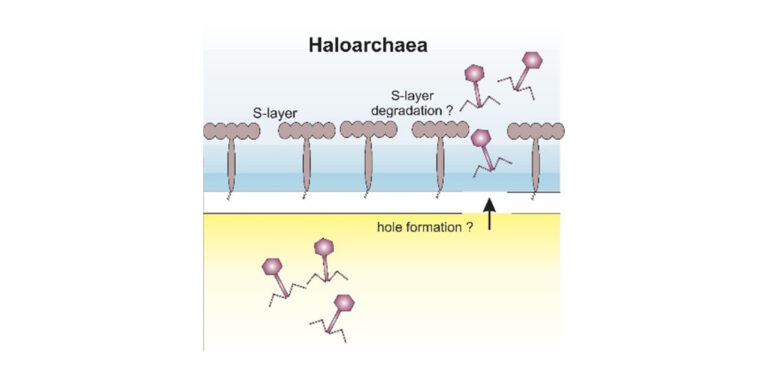GROUP QUAX
Archaea are ubiquitous in the environment and thrive in diverse habitats ranging from the ocean to the human digestive tract. A large fraction of archaeal viruses are capable of chronic infections. During chronic viral infections, particles are constantly produced without disruption of the cell envelop. This is in contrast with lytic viruses, whereby the release of viruses leads to cell death. This project studies the impact of chronic infection on the functioning of archaeal cells, as this is currently not well understood. Different haloarchaea and their chronic viruses are used as model systems. This project will give insight into the molecular mechanisms leading to chronic infection and its impact on cells.

Principal Investigator(s)

Prof. Dr. Tessa E.F. Quax
University of Groningen
Biomolecular Sciences and Biotechnology Institute: Molecular Microbiology
E-Mail: t.e.f.quax@rug.nl
Homepage: www.quaxlab.org
PhD student(s)

Bastiaan Kuiper
University of Groningen (RUG)
E-Mail: b.p.kuiper@rug.nl
Homepage: www.quaxlab.org

Hanna Martin
Publications
Archaeal Host Cell Recognition and Viral Binding of HFTV1 to Its Haloferax Host. (2023) Schwarzer S, Hackl T, Oksanen HM, Quax TEF.mBio. doi: 10.1128/mbio.01833-22.
